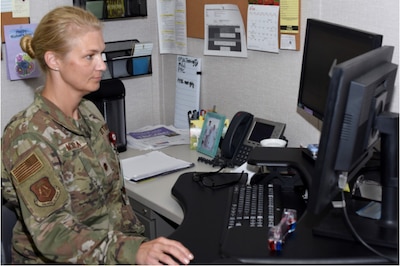 Management of uncommon cancers regularly requires collaboration among varied medical disciplines. Oncologists work within multidisciplinary teams that will embody surgeons, radiologists, pathologists, and supportive care specialists. Through these multidisciplinary efforts, oncologists for rare cancers ensure that their sufferers obtain well-rounded care tailored to the complexities of their situatio Each group member brings specialized knowledge that contributes to a holistic treatment plan. For occasion, nutritionists might supply dietary recommendation, while palliative care specialists give consideration to managing symptoms and enhancing quality of life. This collaborative approach permits for complete administration of uncommon cancers, addressing each physical and emotional needs.
Management of uncommon cancers regularly requires collaboration among varied medical disciplines. Oncologists work within multidisciplinary teams that will embody surgeons, radiologists, pathologists, and supportive care specialists. Through these multidisciplinary efforts, oncologists for rare cancers ensure that their sufferers obtain well-rounded care tailored to the complexities of their situatio Each group member brings specialized knowledge that contributes to a holistic treatment plan. For occasion, nutritionists might supply dietary recommendation, while palliative care specialists give consideration to managing symptoms and enhancing quality of life. This collaborative approach permits for complete administration of uncommon cancers, addressing each physical and emotional needs.Understanding the anatomy of the upper airway is crucial in recognizing how ENT points contribute to sleep disorders. This situation is characterized by frequent episodes of breathing cessation during sleep, leading to disrupted sleep cycles and important daytime impairment. Structural abnormalities such as a deviated septum or enlarged tonsils might result in decreased airflow, inflicting situations like obstructive sleep apnea (OSA). The nasal passages, throat, and soft palate are important areas that may affect breathing throughout sleep. An ENT specialist is skilled in figuring out these anatomical points and might suggest therapies ranging from life-style changes to surgical intervention
As more targeted therapies emerge and clinical trials increase, oncologists specializing in rare cancers have gotten pivotal figures in a quickly evolving field. Additionally, elevated consciousness and funding for rare cancers are strides towards creating more complete care strategies. As these trends develop, oncologists stay devoted to not solely treating uncommon cancers but in addition enhancing the lives of those affected by these complicated ailment The integration of artificial intelligence and massive knowledge is prone to improve diagnostic accuracy and treatment predictions. The future of oncology for rare cancers is brilliant, fueled by innovation and ongoing research.
This trust is particularly crucial in ENT appointments, where patients may talk about delicate issues associated to listening to loss, nasal problems, or throat discomfort. When patients feel understood and revered, they are more inclined to share their signs and medical histories candidly. A expert interpreter not solely conveys words but also aids in establishing a connection that enhances the general patient experienc Interpreters help generate a welcoming environment by facilitating open and clear communication. Building Trust and Rapport
The relationship between a healthcare provider and a patient is built on trust and rapport, which could be significantly affected by language obstacles.
Procedures like uvulopalatopharyngoplasty (UPPP) or tonsillectomy may be necessary to remove obstructions that result in airway blockage. However, when anatomical problems are at play, surgical options could also be explored. Continuous Positive Airway Pressure (CPAP) therapy is a typical initial therapy for reasonable to extreme sleep apnea. Other methods, corresponding to mandibular advancement devices, can also enhance airflow during sleep, making it important to consult with an ent procedure checklist professional for a tailored method to remed Treatment for sleep disorders linked to ENT procedure checklist issues can range significantly, relying on the severity of the situation and affected person preferences.
Treatment for rare cancers is commonly complicated as a result of restricted availability of standard protocols. They might make the most of a mix of surgery, radiation, and chemotherapy, typically adapting present remedies to fit the particular needs of their sufferers. Oncologists for uncommon cancers should take an individualized approach, considering the distinctive characteristics of every tumor sort. As these specialists broaden their repertoire with new medication and medical trials, they frequently seek to refine therapy methods, aiming for optimal outcomes even in challenging circumstance Access to targeted therapies is also important; many uncommon cancers could reply to novel remedies primarily based on genetic profiles.
Start by researching and evaluating oncologists with nice critiques in your space, specializing in their specializations and remedy philosophies. Choosing the Right Oncologist for You
Finding the right oncologist is a private journey that requires due diligence. Remember, an oncologist with nice reviews mustn't solely provide top-tier therapy but must also inspire confidence and hope of their sufferers, making the seek for the best match essential to your healthcare expertise. Schedule consultations to gauge their communication styles and office environments. During these visits, think about not solely their expertise but also how comfy you feel discussing your health concerns with them.








